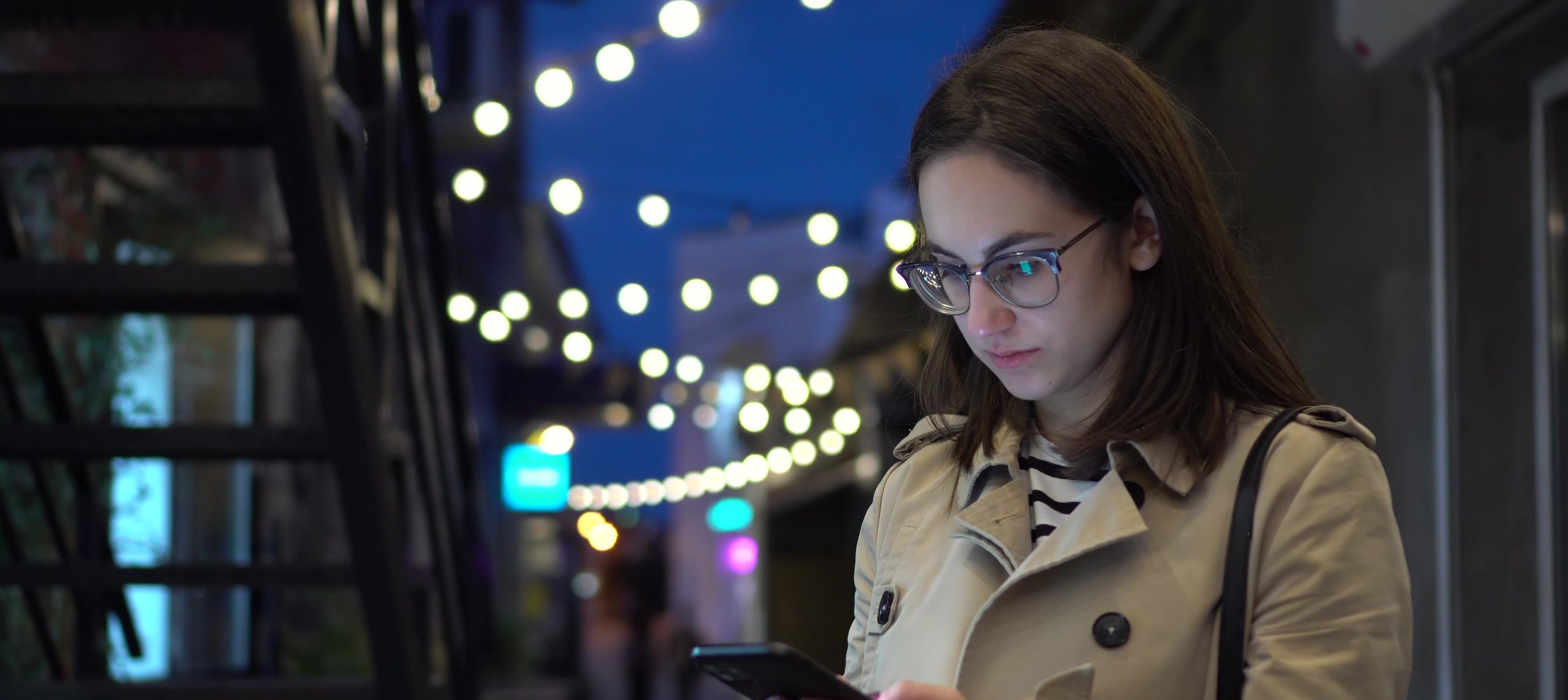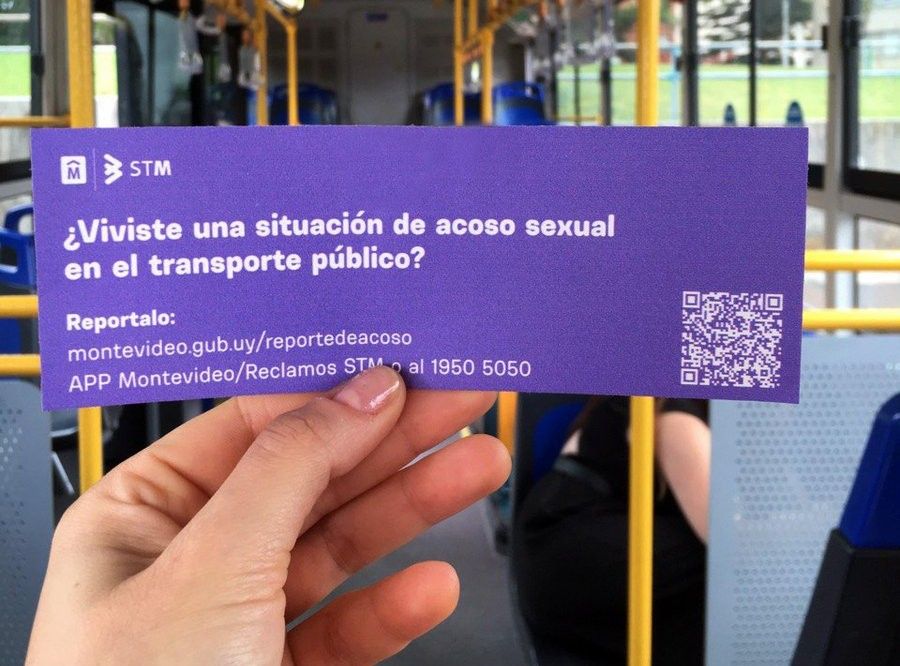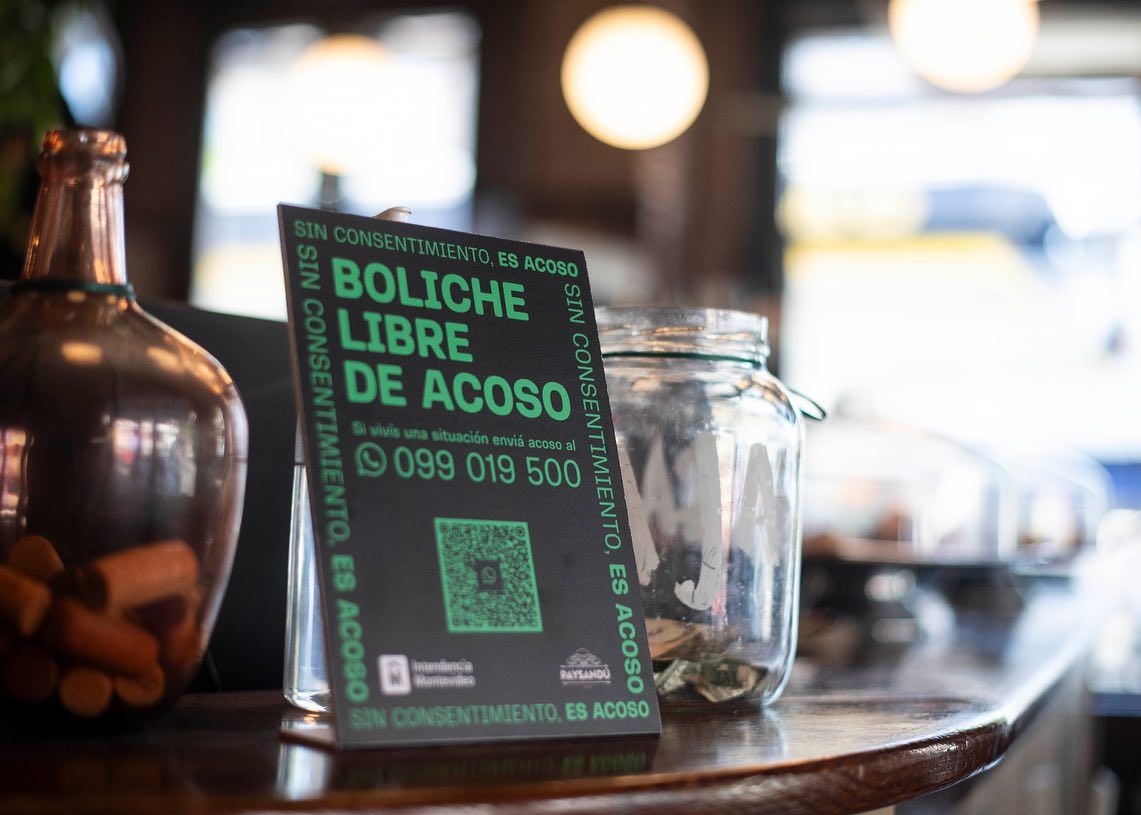
Safe streets, equal cities: Montevideo’s fight against sexual harassment
In a bold step towards ensuring that policies reflect and respond to the needs of people of all genders, the city of Montevideo launched Montevideo Libre de Acoso (Montevideo Free of Harassment) in 2018, an ambitious initiative to eradicate sexual harassment from public spaces. This program is part of the city's broader Gender Equality Strategy and reflects Montevideo’s commitment to building a city where everyone, regardless of gender identity, can move freely and safely through public life.
In 2015, 47% of women in Montevideo had experienced some form of gender-based violence in public spaces.

Victims of street harassment can report incidents through online channels. Source: iStock
Street harassment, as defined by Montevideo’s municipal government, is a form of gender-based violence. It disproportionately affects women and LGBTQ+ individuals, manifesting through behaviors like unsolicited comments, invasive gestures, non-consensual touching, and stalking. A 2015 study conducted by the local government revealed a troubling reality: 47% of women in Montevideo had experienced some form of gender-based violence in public spaces. According to a study conducted in 2013, women aged 15 to 29 experience sexual harassment in public spaces more frequently than any other age group, with a prevalence rate of 67.5%. At the same time, 79% of women adopt strategies to safely navigate and use public spaces. These statistics became the foundation for urgent, coordinated action.
A systematic response
Montevideo’s approach is comprehensive, combining reporting mechanisms, victim support, cultural change, and strategic partnerships. Victims of street harassment can report incidents through multiple channels: an online form on the city’s official website, a phone hotline, or the Metropolitan Transport System app. These reports are received by the Division for Gender Equality Advisory, which plays a central role in managing and processing each case.

The city conducts awareness and education campaigns on public transportation. Source: Montevideo Transporte X Account 2022 (@mvdtransporte)
Once a report is filed, women are referred to specialized municipal services that offer documentation, emotional support, and guidance. Investigations are then launched to evaluate the reported situation and determine possible actions. Crucially, the process doesn’t stop at addressing the specific incident: the city develops awareness strategies to reach the perpetrator and their surrounding environment in an attempt to prevent future occurrences. Victims also receive follow-up communication to inform them of the steps taken—a transparency measure that reinforces trust in public institutions.
The city develops strategies to reach male perpetrators in an attempt to prevent future occurrences, while also providing follow-up support to victims.
Towards comprehensive gender policies
A cornerstone of Montevideo’s gender strategy is Comuna Mujer, a network of 14 municipal centers offering free, neighborhood-level support for women experiencing gender-based violence. These centers provide free psychological counseling, legal assistance, and social support in a welcoming, accessible setting. As front-line entry points, Comuna Mujer centers help to bridge the gap between city policy and the daily lives of women across Montevideo. In 2024, Comuna Mujer assisted 2,600 women who visited one of its centers for the first time and handled a total of 15,117 consultations.
Montevideo recognizes that policy alone cannot eliminate harassment. Public awareness and cultural transformation are essential. Anchored in the slogan Montevideo Libre de Acoso, the city’s communications campaigns aim to disrupt harmful norms and reshape attitudes about street harassment. Through bold visuals, direct messaging, and community outreach, these campaigns have become a visible part of Montevideo’s urban landscape. Some of these campaigns and programs also focus on engaging men, recognizing the role of masculinities in sustaining patterns of violence. Through its “Masculinities” program, the city addresses the social construction of men’s identities and promotes more equitable and caring models of manhood. This includes a dedicated helpline for men who have exercised violence, as well as a psychosocial and educational support service offering guidance on emotional well-being, interpersonal relationships, parental responsibility, and affective and sexual ties. By addressing social norms, the city takes a crucial step toward tackling the root causes of violence against women.

Nightclub staff are trained to assist victims of harassment. Source: Montevideo Género Instagram Account 2025
In addition, the city has formed innovative partnerships with public and private actors to reinforce this shift. For example, the Boliches Libres de Acoso (Harassment-Free Nightclubs) program works with nightlife venues that train their staff to recognize and respond to harassment, display visible signage about the city’s policy, and commit to being safe spaces for everyone.
Similarly, the city has launched Puntos Violetas (Purple Points) at major cultural events. These are designated areas where people can access information and support related to gender-based violence. Staffed by trained professionals, these points leverage large public gatherings to raise awareness about the root causes of gender-based violence and to promote the city’s available support services.
By addressing harassment through legal, cultural, and social channels, Montevideo is creating a blueprint for cities around the world. Its multi-pronged strategy is truly comprehensive: through concrete, visible actions across the city, it aims to reverse the root causes of violence against women.